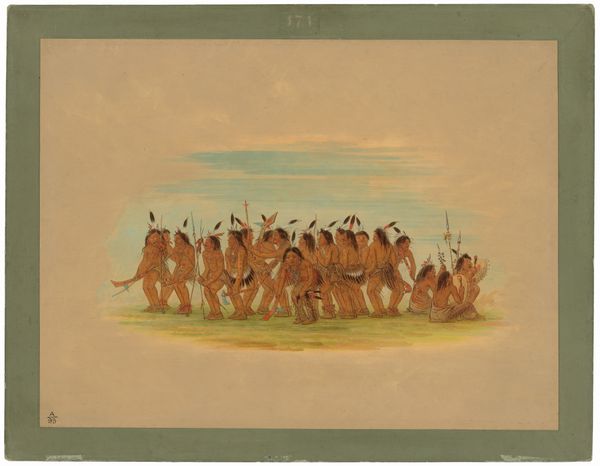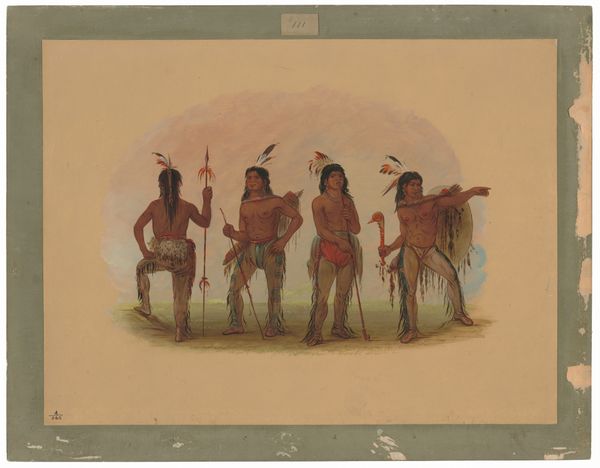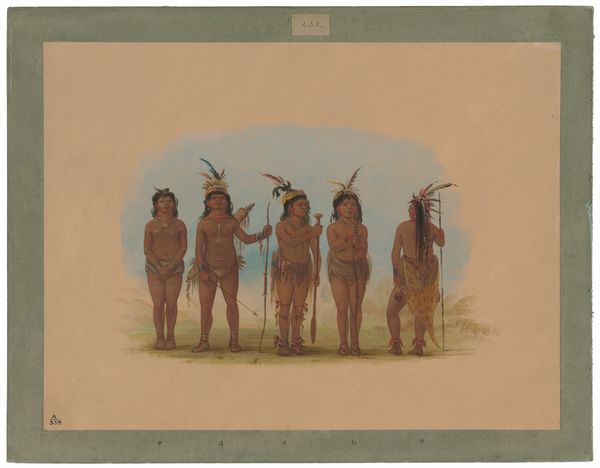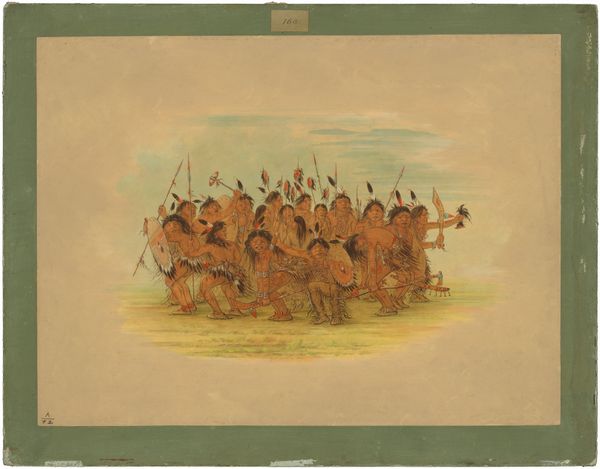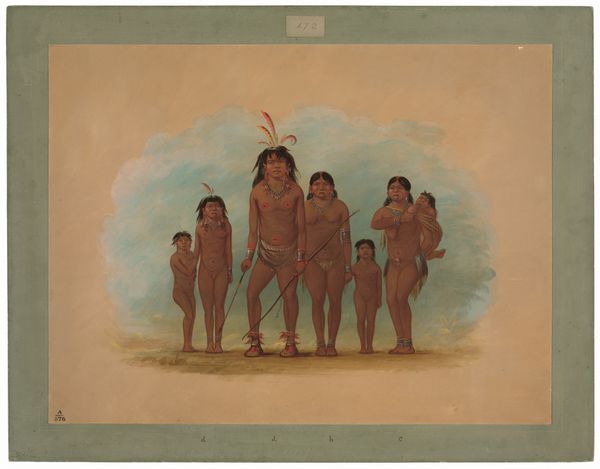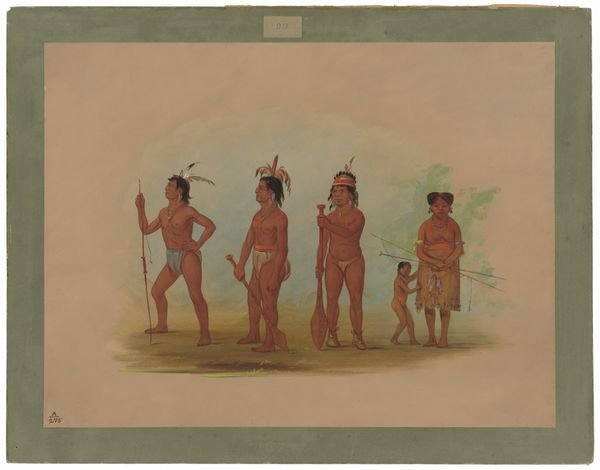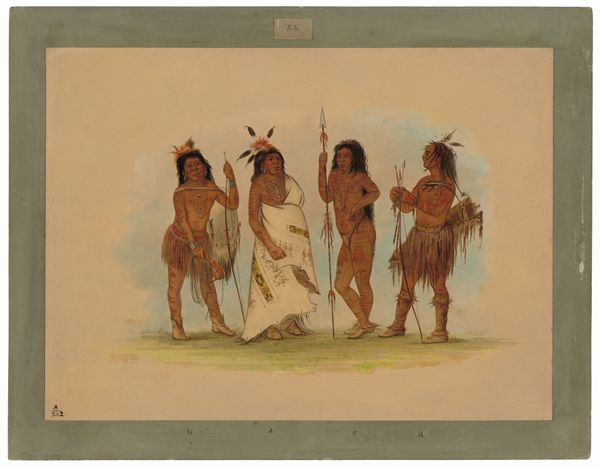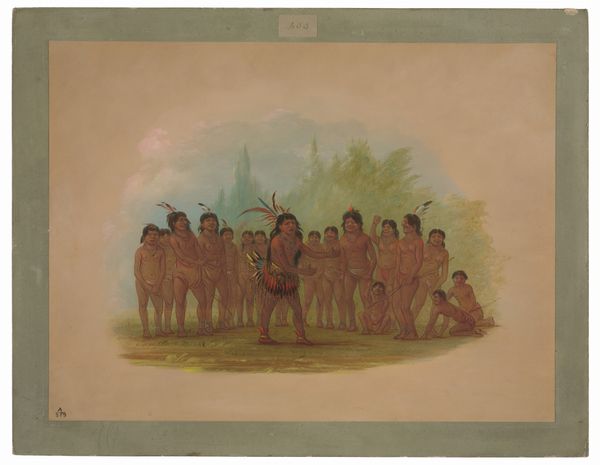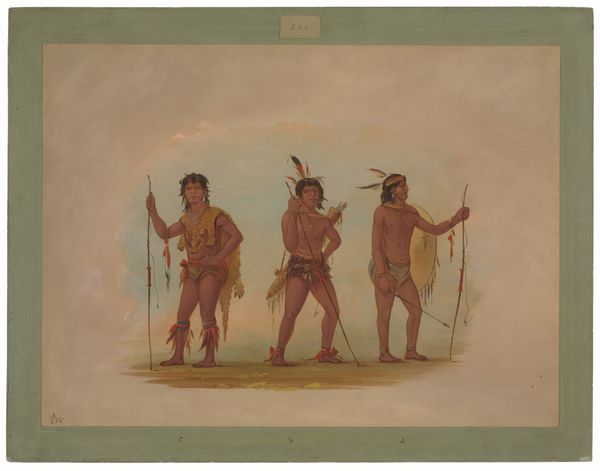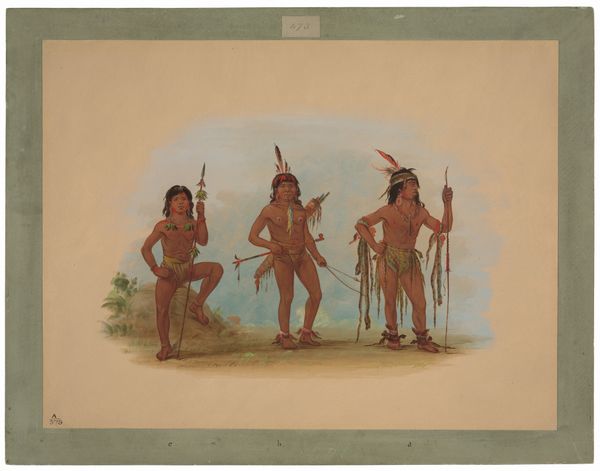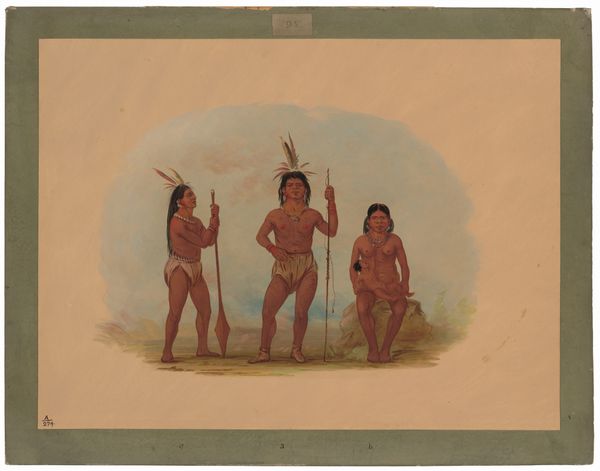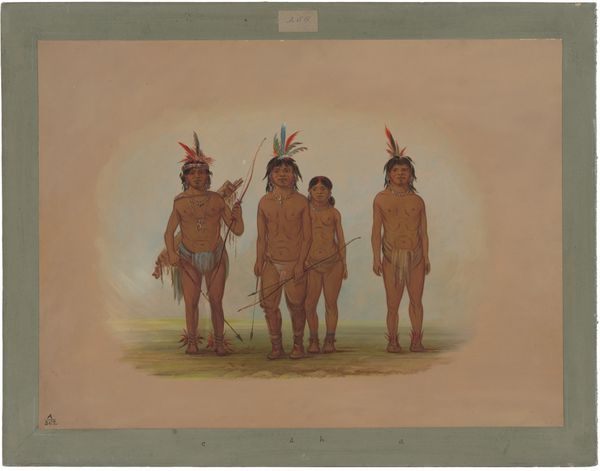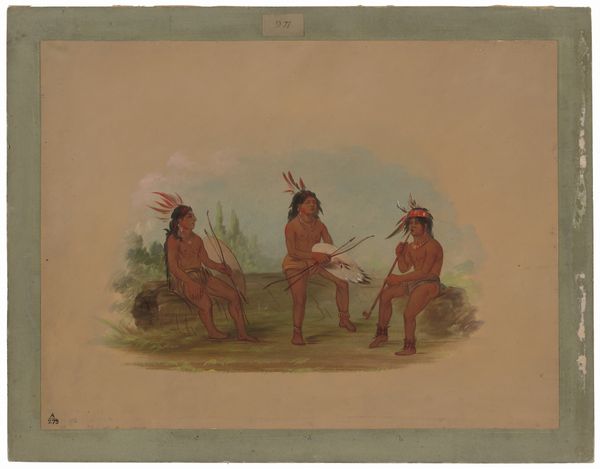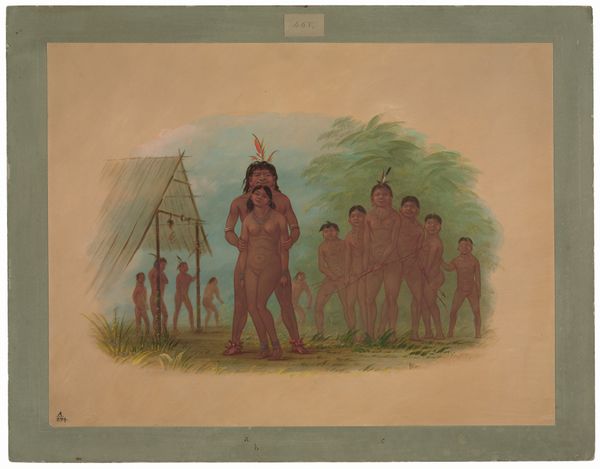
gouache
#
water colours
#
narrative-art
#
gouache
#
figuration
#
naive art
#
watercolor
Dimensions: overall: 46.5 x 61.2 cm (18 5/16 x 24 1/8 in.)
Copyright: National Gallery of Art: CC0 1.0
Editor: This is George Catlin's "Bear Dance - K'nisteneux," painted in 1861, using watercolor. The scene feels very contained, a tight circle of figures almost separated from the background. What's your perspective on this piece? Curator: This work presents a complex intersection of representation and power dynamics. On one hand, Catlin documented Indigenous life, seemingly preserving a cultural moment. However, we must question from whose perspective is this narrative being constructed? Consider the colonial context. How might Catlin's own biases and cultural framework shape his interpretation and presentation of this ceremony? Editor: That’s a really good point. So it’s not just about documenting, it’s about interpreting and framing too. How can we see that bias reflected in the painting itself? Curator: Notice the almost flattened, simplified style. Some might call it "naive art," but I ask, what does that label do? Does it dismiss Indigenous artistic practices by judging them through a Western lens of artistic skill and sophistication? And who benefits from such a dismissal? Think about the ways Indigenous people were – and continue to be – rendered "primitive" or "unsophisticated" to justify colonial expansion and oppression. Editor: I see what you mean. By calling it "naive," we risk diminishing its cultural significance and complexity. Curator: Exactly. The painting, therefore, becomes a site of struggle. It invites us to critically examine the power relations inherent in representation itself. It also begs us to seek out the perspective of the K'nisteneux people on their own cultural practices. Editor: That makes me think differently about the role of art in shaping historical narratives. It’s a good reminder that every artwork exists within a network of social and political meanings. Curator: Precisely. Hopefully this pushes us to approach art with greater criticality and awareness.
Comments
No comments
Be the first to comment and join the conversation on the ultimate creative platform.
